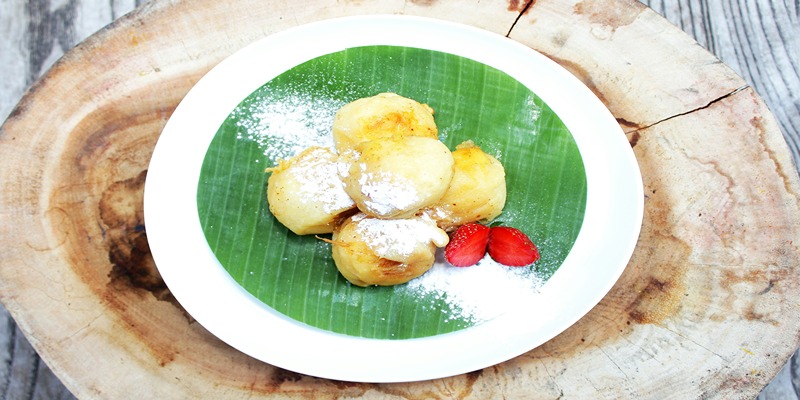Discovering the Nutritional Perks of Tapioca
Mar 11, 2024 By Nancy Miller
A versatile starch derived from cassava root, tapioca has exploded in popularity throughout the globe. In addition to being a nutritional goldmine, tapioca is a gastronomic joy because of its neutral flavor and distinctive texture. In tropical places, where cassava plants are abundant, this starchy material is a mainstay in many people's diets. Because of its high carbohydrate content, it is a great option for individuals who need a steady supply of energy quickly. Additionally, it is a safe and preferable choice for individuals with celiac disease or gluten allergies because it is gluten-free. In this article, we will delve into the fascinating story of tapioca, a root vegetable that has grown into a beloved and very nutritious cuisine across the world.

Tapioca Health Benefits: Unveiling the Advantages
Digestive Health and Tapioca
The digestive system relies on tapioca to function properly. People with sensitive stomachs may find it pleasant because of its high starch content, which makes it easier to digest. Furthermore, the high fiber content of tapioca helps maintain regular bowel movements and avoids constipation. Additionally, this fiber supports a balanced gut microbiota by providing food for the good bacteria already there. A helpful addition to any diet focused on gastrointestinal health, tapioca can assist to overall digestive wellbeing by harmonizing the digestive process and promoting gut health.
Role in Weight Management
Tapioca has special advantages when it comes to controlling one's weight. Those watching their weight may benefit from its low protein and fat content despite its high carbohydrate level. You may reduce your calorie consumption by eating tapioca since it contains carbs, which provide energy, and it makes you feel full for longer. For individuals trying to watch their calorie intake without sacrificing flavor, this is a fantastic option. In addition, together with a balanced diet and moderate consumption, tapioca can help with long-term weight management by meeting energy demands and promoting weight loss.
Benefits for Bone Health
Despite its underappreciated mineral content, tapioca really has some positive effects on bone health. It has a little quantity of the bone-and tooth-building minerals calcium and phosphorus. Beyond these nutrients, tapioca has further benefits for bone health. Proper energy balance is essential for bone health, as bones rely on energy for construction and function. The carbohydrate component of this food aids in this endeavor. Therefore, tapioca can help keep bones strong and stave against bone-related diseases when eaten regularly, particularly when combined with other nutrient-rich foods.
Tapioca as a Nutritional Starch: Understanding Its Role
Composition and Types of Starch in Tapioca
The starch content of tapioca is the highest of its carbohydrate components. Amylopectin and amylose are the main polysaccharides in this starch, which govern its digestibility and textural qualities. The hallmark gummy and chewy texture of tapioca is imparted by amylopectin, the more prevalent of the two. In contrast, amylose helps set into a solid gel when cooled. How these starches are distributed in tapioca affects its nutritional value and culinary applications. Tapioca is an excellent energy source, especially for diets that need quick-release carbs, because it is nearly pure starch, unlike many other starch sources.
Comparison with Other Starch Sources
Because of its low protein and nutritional content, tapioca stands out among other typical starch sources such as corn, rice, potatoes, and beans. Because of this, it provides a concentrated source of energy, mostly from carbs. Diets requiring a pure starch source may benefit from tapioca, but its poor protein and nutritional profile means it has to be eaten in conjunction with other nutrient-rich foods to be considered balanced. For individuals who need meals that are simple to digest and mild on the stomach, tapioca may be a good option because its fiber levels are relatively low, unlike those of certain starches. Tapioca is an excellent carbohydrate component in many different diets due to its unique composition and properties.

Tapioca in Special Diets: Versatility and Usage
Tapioca in Gluten-Free Diets
In gluten-free diets, tapioca becomes a standout component. To those who suffer from celiac disease or gluten sensitivity, it is a perfect substitute due to its natural absence of gluten. Sauces, soups, and gravies made using gluten-free ingredients typically call for tapioca flour to thicken, as gluten-based flours are off-limits. Because of its subtle flavor, it complements a wide variety of foods and is a must-have in any kitchen. Adding a chewy texture to gluten-free breads, pastries, and sweets, tapioca pearls are a popular ingredient.
Use in Vegan and Vegetarian Diets
Vegan and vegetarian diets can benefit from tapioca. Since it is entirely plant-based, it is in perfect harmony with the tenets of these diets. Because of its adaptability, it may be used as a binder in meatless burgers, meat alternatives, and dairy-free cheeses, giving them structure and cohesiveness without using any components that come from animals. Puddings, bubble teas, and other dairy-free treats typically use tapioca pearls mixed with nut or plant milks. People on plant-based diets rely on the energy it offers, which is provided by its high glucose content.
Dietary Contributions of Tapioca: Beyond the Basics
There are some nutritional benefits to consuming tapioca, even though it isn't known for its high vitamin and mineral content. Folate and vitamin B6, two B-vitamins essential to metabolism and brain function, are present in tiny levels in this food. Additionally, there are trace levels of minerals such as calcium, iron, and selenium. Iron is critical for healthy blood, calcium for strong bones, and selenium for healthy thyroid and antioxidant defense. Although tapioca isn't particularly rich in these micronutrients, they do add to the food's total nutritional worth and make it a better fit for a healthy diet.
Conclusion
Tapioca is an interesting and multipurpose dietary choice that has many positive health effects. This versatile food is great for anyone following gluten-free, vegan, or vegetarian diets because of the positive effects it has on digestive health, weight management, and bone health. Although it does not contain a ton of nutrients on its own, it is an important part of a healthy diet, particularly when combined with other foods that are high in nutrients. Because of its versatility in the kitchen, ease of preparation, and ability to provide energy, tapioca is a great complement to many different types of diets.

Surgery vs. Non-Surgical Approaches for Degenerative Meniscus

Foods That Should Never Go Out of Stock: Healthy Essentials

7 Reasons to Enjoy Peanuts in Winter But With Caution!

Unveiling the Health Benefits of Nutritious Lemons
Key Insights into 4 Common Types of Psychotic Disorders

A Beginner's Guide To The Mediterranean Diet

Broccoli: The Superfood with Incredible Benefits


